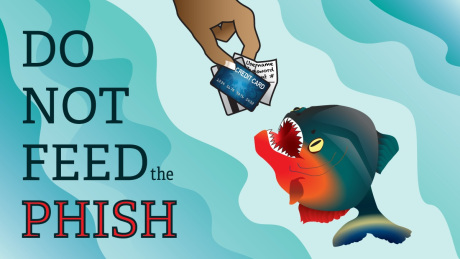 The Internet has become a big part of our lives these days. We access the web to research new topics, complete assignments for school and communicate with friends.
The Internet has become a big part of our lives these days. We access the web to research new topics, complete assignments for school and communicate with friends.
It can be a place for us to discover new passions, be entertained, and develop skills for the future too. But you may have also heard your parents and teachers caution you about being safe online.
But what exactly does “staying safe on the Internet” mean? Usually, this phrase refers to common-sense safety practices that we should apply in the “online world” just as we do in the “real world.” In the “real world” you, of course, wouldn’t talk to or take candy from a stranger, right? In the virtual world, if a stranger offers you something or makes you feel uncomfortable, similar rules come into play.
Online Bullying
 In the online world, people sometimes create anonymous accounts and say hurtful or inappropriate things that they wouldn’t have said if their face was visible. They may also send text messages or make personal attacks on social media. This is known as cyberbullying, and it’s not okay.
In the online world, people sometimes create anonymous accounts and say hurtful or inappropriate things that they wouldn’t have said if their face was visible. They may also send text messages or make personal attacks on social media. This is known as cyberbullying, and it’s not okay.
If you are being bullied, you can use tools like blocking and reporting to push out the bully’s negativity. If you feel comfortable doing so, you could also stand up to the bully and tell them that their actions aren’t okay. Most importantly, if you see others being bullied or left out, know that you have an opportunity to be an upstander by being a force for kindness. Whether that means standing up to the bully yourself or just being a supportive, kind friend for the person who was bullied, you have the potential to really make an impact when you see this sort of thing.
Phishing
 Phishing is a cyber threat that is currently on the rise. It is when an individual or an organization tries to get information from you, such as login information and other personal details, by pretending to be someone they are not.
Phishing is a cyber threat that is currently on the rise. It is when an individual or an organization tries to get information from you, such as login information and other personal details, by pretending to be someone they are not.
An example of this would be landing on a page that looks like the login page for your favorite website but is actually a fake phishing site designed to look very similar so you give away your username and password. Knowing how to look for the right clues – such as by checking the website or email address – can help you be safer online. And of course, if something feels “phishy” or too good to be true, it probably is.
Password Security
Password security is another big part of keeping yourself safe online. Did you know that in the United States today, the most common password is ‘password’ and the second most common is ‘123456’? Many people are aware that these are not strong passwords, but they oftentimes don’t know how to create better passwords or are overwhelmed by trying to remember them.
I recommend starting with a sentence you know you’ll remember and taking the first couple letters of each word to form a base password. Then, swap in some numbers and symbols to make it more complex. For example, if your base password has an ‘S’, maybe swap a $ in instead, or if it has an ‘E’, maybe swap in a 3. Doing so makes your password harder for someone to guess, but keeps it memorable for you. Using both uppercase and lowercase letters and adding extra numbers will make your password even stronger.







